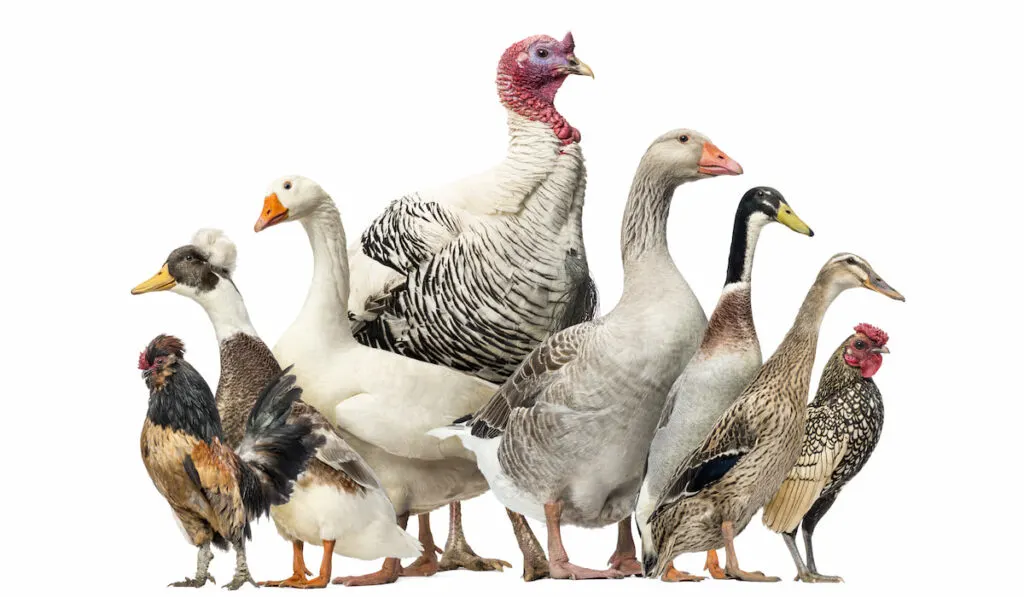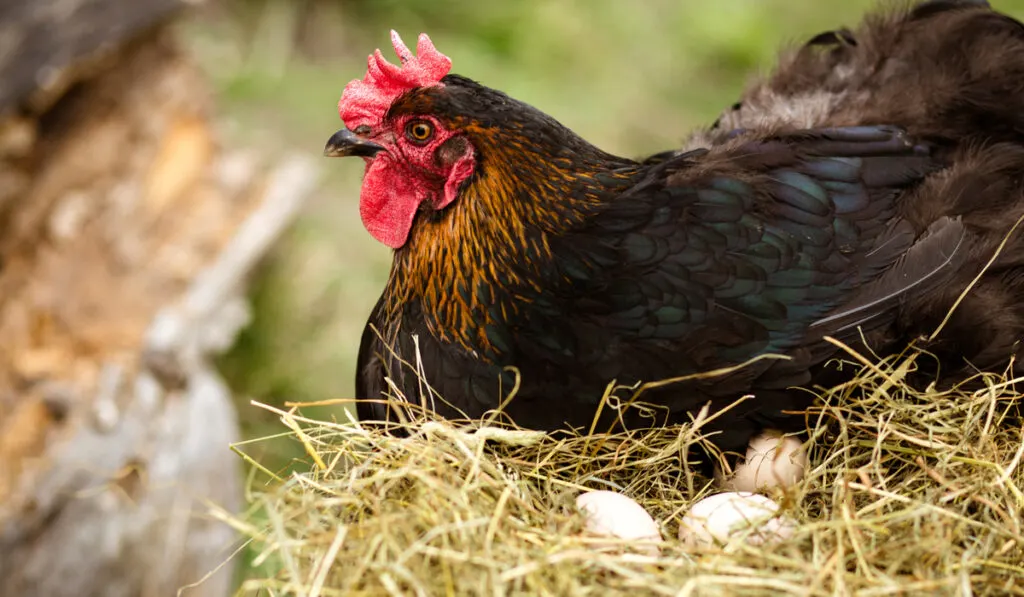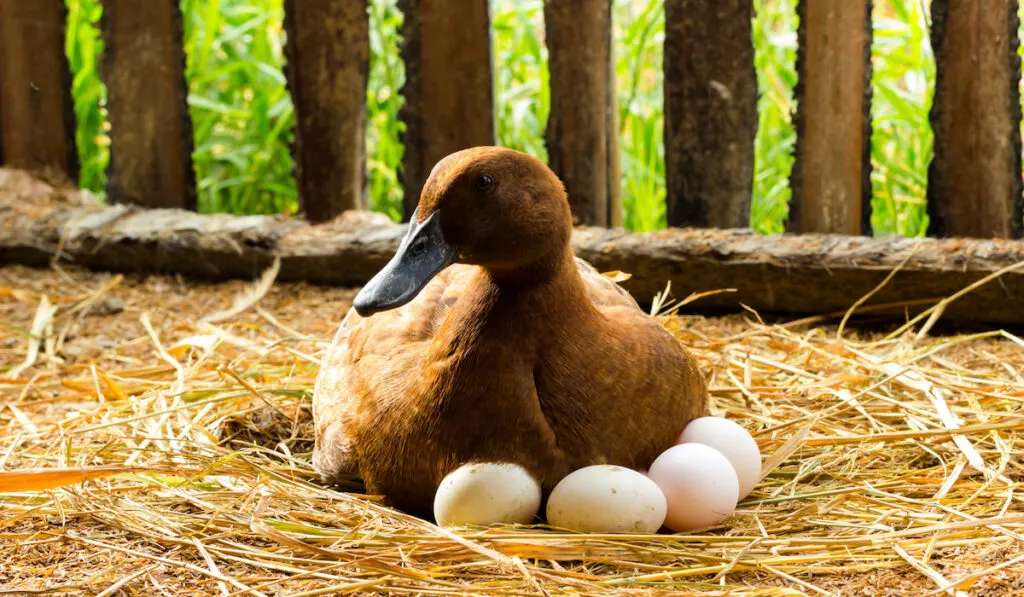Not all eggs are kosher. To be kosher, an egg must come from kosher birds. There are often questions about which types of eggs are kosher because the Torah, the Jewish holy text, only outlines classes of birds that aren’t kosher.
So, can we extrapolate that any bird not listed is then kosher because they’re not on the list? To be clear, the Torah talks about 24 types of birds that aren’t kosher.
Obviously, there are many more different types of birds in the world, but we don’t always eat their eggs.
Some of the birds not included on the list include chickens, ducks, geese, turkeys, and Cornish hens. Thankfully, these birds, especially chickens, are some of the easiest and most delicious eggs anywhere.
Learning about which eggs are kosher and how to prepare them will help you whether you’re eating kosher yourself or preparing foods for friends who only eat kosher foods.
Here are some of the different types of kosher eggs and other important information to know.

Table of Contents
What Makes a Bird Kosher?
Determining whether a bird and its eggs are kosher can be challenging. Indeed, kosher requirements are sometimes very elaborate, and food preparers and eaters must follow a list of strict rules to guarantee they are living by kosher guidelines.
Besides listing non-kosher birds, there are some ways to know whether a type of egg is kosher. Some of them include the following:
- Birds of prey are not kosher
- Birds without extra toes/gizzard/crop that can be removed are not kosher
- Any eggs with drops of blood in them are not kosher
- Any bird that injects venom into prey is not kosher
The extra toe is an interesting feature of kosher birds. For example, birds like chickens have a toe on the back of their feet that’s higher than the rest of their claws.
Conversely, birds like parrots don’t have that extra toe, and the Mishnah identifies birds that part their toes when standing on a rope as not being kosher.
Types of Kosher Eggs
Here are some of the common types of kosher eggs, along with some helpful information about how to prepare them.
Chicken Eggs

Chicken eggs are the most popular type of eggs in the world. You can find them in any grocery store worldwide. They’re affordable, taste great, and go in a ton of recipes. People use chicken eggs for breakfast foods, baking, and many other dishes.
Chickens, as kosher birds, have kosher eggs. The main thing people who follow kosher rules must be aware of is not eating eggs with even the tiniest amount of blood. Kosher diets have a strict prohibition on consuming blood.
Sometimes, when the egg is more developed, there are blood spots in the yolk when you crack a chicken egg open. Any egg with blood in it is immediately deemed non-kosher.
In most cases, people should open the egg in a transparent dish, making it easy to inspect the egg before cooking. Check it for blood spots before you toss it in the pan or mix it into a recipe. If there is any blood in the egg, it must be thrown away, and you should wash the dish.
When boiling chicken eggs, most people who eat kosher boil only three eggs simultaneously. The same rules apply to boiled eggs; if you see any blood spots, you should discard the egg.
Duck Eggs

Duck eggs are likely the second most popular type of egg. The availability of chicken eggs everywhere makes duck eggs a rarity, but you can buy duck eggs in specialty shops.
Recently, more restaurants have been preparing dishes with duck eggs because of their larger size and deeper flavors.
Duck eggs are kosher because ducks are kosher. Ducks check all of the boxes listed above. However, the same rules around blood apply here.
Anytime someone opens a duck egg with blood in it, they must throw it away and wash the dish if they wish to abide by kosher guidelines.
It can be harder to find duck eggs because ducks don’t lay as many eggs per year as chickens. Thus, farming ducks for eggs doesn’t make much sense economically.
As a result, people typically must pay a premium for duck eggs or find a local farm or some other source where they can buy them.
Goose Eggs

The same rules apply to goose eggs as chicken and duck eggs. Goose eggs are safe to eat, but not many people enjoy eating goose eggs because they have a much stronger taste than chicken or duck eggs.
However, some people who raise geese use goose eggs in baking because the oven and combination with other ingredients dull the flavor of the eggs.
They’re larger and go a long way when you want to make a cake, bread, or some other recipe with eggs.
Quail Eggs

Quail eggs are another type of egg that is kosher. However, it’s crucial to point out that not all quail breeds are considered kosher.
As a result, whether your quail eggs are kosher depends on where they came from. For a quail egg to be kosher, it must come from a kosher bird.
Many people only eat quail and their eggs if they are from the Coturnix quail breed. The roots of determining this breed of quail as kosher, and not others, date back to evidence from Egyptian records showing ancient Egyptians harvesting the birds.
Quail eggs are famous, and they’re used more in countries outside of the United States in dishes. Here in America, you’ll find quail eggs in fancy restaurants or appetizers at formal events.
Conclusion
The Torah only outlines 24 non-kosher birds. However, other kosher dietary guidelines help people know which types of eggs they can eat and how to eat them.
This list offers insight into what types of eggs are kosher and how to handle any blood spots when you open them. Thankfully, chicken eggs are almost always kosher, and most people regard them as the tastiest eggs in the world.
If you have any questions about kosher eggs, please get in touch with your Rabbi for specific instructions and advice. The information on this list is based on available research, and some people may vary in how they apply kosher guidance.
